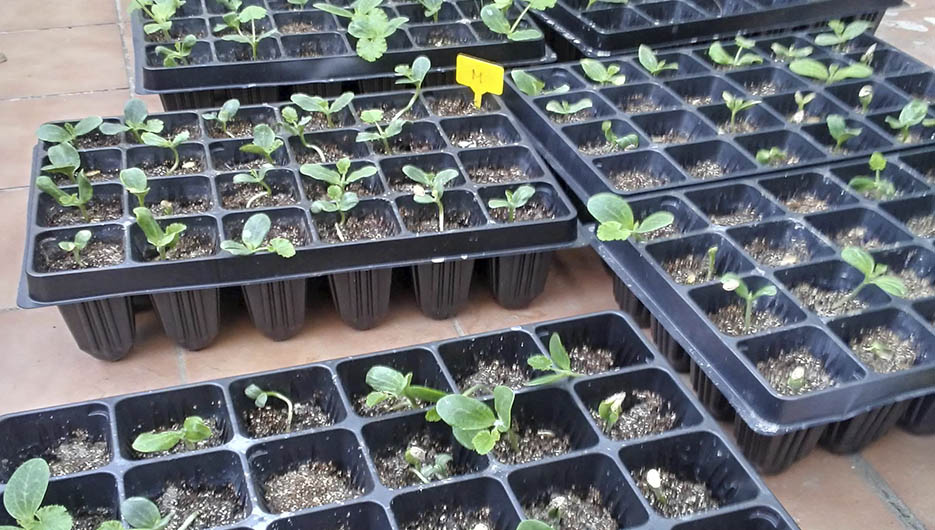
This year 2021 we started a new research and development experiment with mycorrhizae, we are working with courgettes and we want to investigate their production under greenhouse conditions.
To do this, in 2020, we collected native mycorrhizas and put them to grow. Yes, we can force mycorrhization and enhance its production and thus create a substrate with propagules and spores of mycorrhizas. For its production, the soil with natural mycorrhizas was mixed with sand in a 30 l pot and seeds of three types of plants, legumes, grasses and aromatic plants were placed. This is the ideal blend to enhance the production of native mycorrhizas.
Cultural practices are minimal, just be aware of watering when it is needed and cut the grass a couple of times to force mycorrhization. After 5 months, all the vegetation is trimmed and we keep the soil and save it for use.
For this year’s experiment, 200 zucchini seeds have been caught and sown in 6 * 4 alveoli seedlings in a poor substrate, a mixture of sand, vermiculite, coconut fiber and compost, the latter in a very low proportion to force mycorrhization. Plants don’t mycorrhize if there are too many nutrients. Each socket, half of the seedbeds, have been mycorrhized with a coffee spoon of the mycorrhized substrate produced by us. The seeds were put in the first week of March and today we have taken a part of them to the greenhouse to transplant them and start monitoring them. Later we will take the rest of the plants to the farm when it is not so cold at night.
We want to know if plant production with mycorrhizas is just as efficient in protected crops as outdoors.
More information:
Clean-Biotec
laboratorio@clean-biotec.com
(+34) 941 238 261
www.clean-biotec.com


